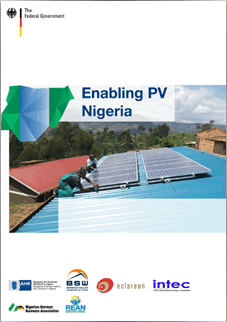Enabling PV Nigeria
Nigeria’s current electrification rate is only 59% and energy demand is expected to grow steadily due to a fast-growing population and economy. Approximately 80% of Nigerians use alternative sources of electricity supply, particularly diesel generators, which have an installed capacity of 8–14 GW.
Looking at the market segments it should be noted that residential usage accounts for almost 58% of overall electricity consumption, while the industrial sector only accounts for 17%.
The relatively low industrial energy consumption is an indicator of the ongoing energy crisis in Nigeria and its consequences.
To ensure further economic development and to adopt a growing population into a strong labour force, Nigeria needs a strong industrial sector, which in turn needs a reliable and stable supply of electricity, which has not been provided to the extent necessary in the past.
Renewable energies, in particular solar PV, can substantially contribute to the improvement of energy supply in Nigeria – and this is being recognized by policymakers.
The National Renewable Energy Action Plans (NREAP) of Nigeria supports the adopting of 30,000 MW in installed capacity, with a share of at least 30% in renewable energies. The targets for the installed capacity of solar PV are 2,000 MW by 2020 and 5,000 MW by 2030.
Details
- Source: German Solar Association – BSW-Solar
- Source Link: https://www.solarwirtschaft.de
- Publication Date: 08/2018
- Language: English
